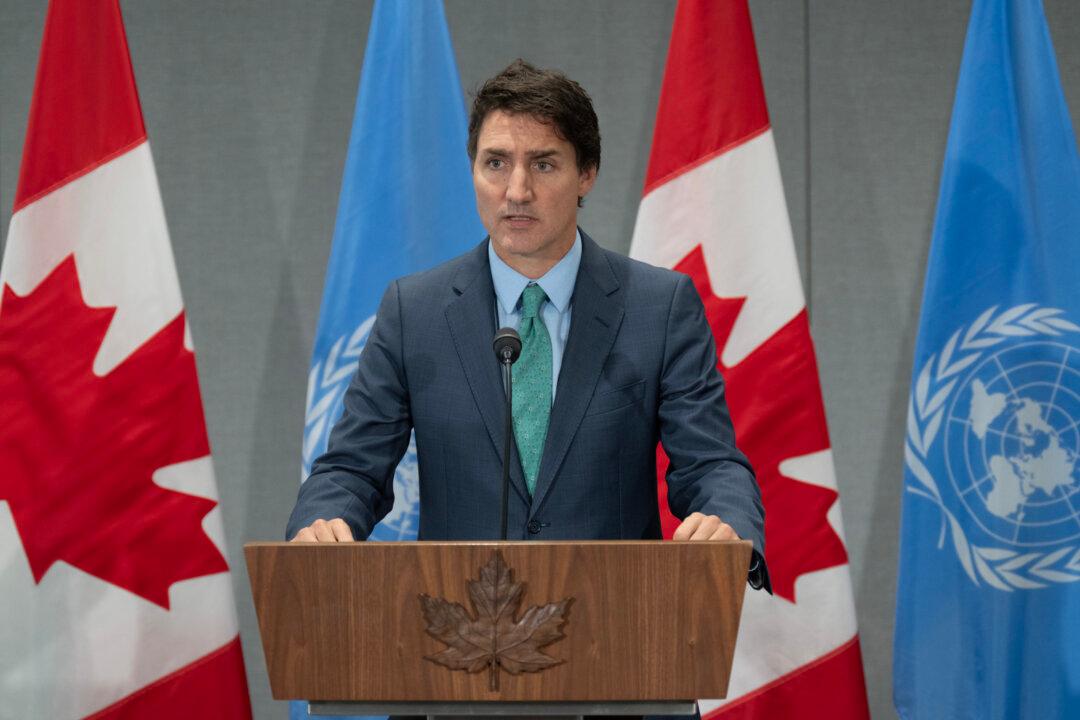Prime Minister Justin Trudeau has rejected a call from the Business Council of Canada (BCC) to limit spending, instead arguing that “strong countries … invest in themselves and their people.”
Responding to a reporter’s question about the recent letter while at a Montreal press conference Jan. 23, Mr. Trudeau said his focus “needs to be and will continue to be on how we’re there to support Canadians in a challenging time, and how we create greater growth and opportunities for them in the years to come.”





